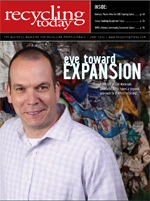 |
Single-use plastic bags are not the only items legislators are threatening to ban. In California, Sen. Alan Lowenthal has introduced a bill, SB 568, that would ban polystyrene (PS) food containers in that state.
According to a fact sheet on the legislation, its purpose is “to help mitigate the detrimental effects polystyrene is having on our waterways, storm drains and marine life.” The fact sheet cites a study of beach debris at 43 sites along the Orange County coast that claims EPS (expanded polystyrene foam) is the second most abundant form of debris.
SB 568 would prohibit restaurants or food vendors from dispensing prepared food to customers in EPS containers on or after Jan. 1, 2014. Public schools would have until July 1, 2015, to comply.
Forty-seven California jurisdictions, including the cities of San Francisco and Oakland and the counties of Marin and Santa Cruz, ban food vendors from using EPS packaging.
SB 568 has the support of numerous cities and restaurants as well as nonprofit groups such as the Institute for Local Self Reliance, Californians Against Waste, Defenders of Wildlife and the California Coastal Commission.
The Hermosa Beach (Calif.) City Council recently rejected a similar proposed ban on EPS food service containers. According to a report in the Daily Breeze, Councilman Michael DiVirgilio called the proposed ordinance “draconian” and instead encouraged the implementation of an outreach program.
“I don't think a ban is the right approach,” DiVirgilio told the Daily Breeze. “This is not going to solve the problem. It may eliminate some use in restaurants, but it’s going to force folks to change their products and be frustrated with us. I think there is a better way.”
In response to the proposed ban in Hermosa Beach, the Plastics Foodservice Packaging Group of the American Chemistry Council released a peer-reviewed study, available at www.plasticfoodservicefacts.org, that finds food service containers made from polystyrene foam use significantly less water and energy than comparable paper- or corn-based alternatives.
Markets for secondary plastics remain stable as spring advances. When it comes to domestic generation of plastic scrap, a reprocessor based in the Midwest says it remains steady, as manufacturers continue to emerge from the recession.
He characterizes domestic and export demand as strong, adding that buyers for Chinese consumers are “buying any commodity grade plastic they can get their hands on.” He continues, “As is the trend of the last several years, China continues to expand into engineering grade materials as well.”
Prices for secondary engineering grades remain stable, the reprocessor notes, adding that demand for recycled PE (polyethylene), PP (polypropylene) and PS continues to increase on the secondary market.
(Additional information about secondary plastics, including breaking news and consuming industry reports, is available at www.RecyclingToday.com.)

Explore the June 2011 Issue
Check out more from this issue and find your next story to read.
Latest from Recycling Today
- AF&PA report shows decrease in packaging paper shipments
- GreenMantra names new CEO
- Agilyx says Styrenyx technology reduces carbon footprint in styrene production
- SABIC’s Trucircle PE used for greenhouse roofing
- Hydro to add wire rod casthouse in Norway
- Hindalco to invest in copper, aluminum business in India
- Recycled steel price crosses $500 per ton threshold
- Smithers report looks at PCR plastic’s near-term prospects






